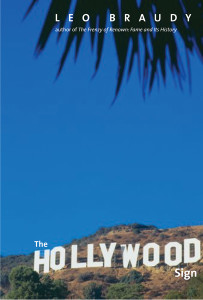 Constructing Charisma: Celebrity, Fame, and Power in Nineteenth-Century Europe, a collection of essays edited by Edward Berenson and Eva Giloi, is now available from Berghahn Books.
Constructing Charisma: Celebrity, Fame, and Power in Nineteenth-Century Europe, a collection of essays edited by Edward Berenson and Eva Giloi, is now available from Berghahn Books.
Leo Braudy’s essay “Secular Anointings: Fame, Celebrity, and Charisma in the First Century of Mass Culture” provides the book’s conclusion.
Berghahn describes the anthology this way:
Railroads, telegraphs, lithographs, photographs, and mass periodicals—the major technological advances of the 19th century seemed to diminish the space separating people from one another, creating new and apparently closer, albeit highly mediated, social relationships. Nowhere was this phenomenon more evident than in the relationship between celebrity and fan, leader and follower, the famous and the unknown. By mid-century, heroes and celebrities constituted a new and powerful social force, as innovations in print and visual media made it possible for ordinary people to identify with the famous; to feel they knew the hero, leader, or “star”; to imagine that public figures belonged to their private lives. This volume examines the origins and nature of modern mass media and the culture of celebrity and fame they helped to create. Crossing disciplines and national boundaries, the book focuses on arts celebrities (Sarah Bernhardt, Byron and Liszt); charismatic political figures (Napoleon and Wilhelm II); famous explorers (Stanley and Brazza); and celebrated fictional characters (Cyrano de Bergerac).
The book is available directly from the publisher at a 15% discount, or through Amazon.
You can also preview the book through Google:
 Yale University Press will publish The Hollywood Sign: Fantasy and Reality of an American Icon in February 2011.
Yale University Press will publish The Hollywood Sign: Fantasy and Reality of an American Icon in February 2011.
